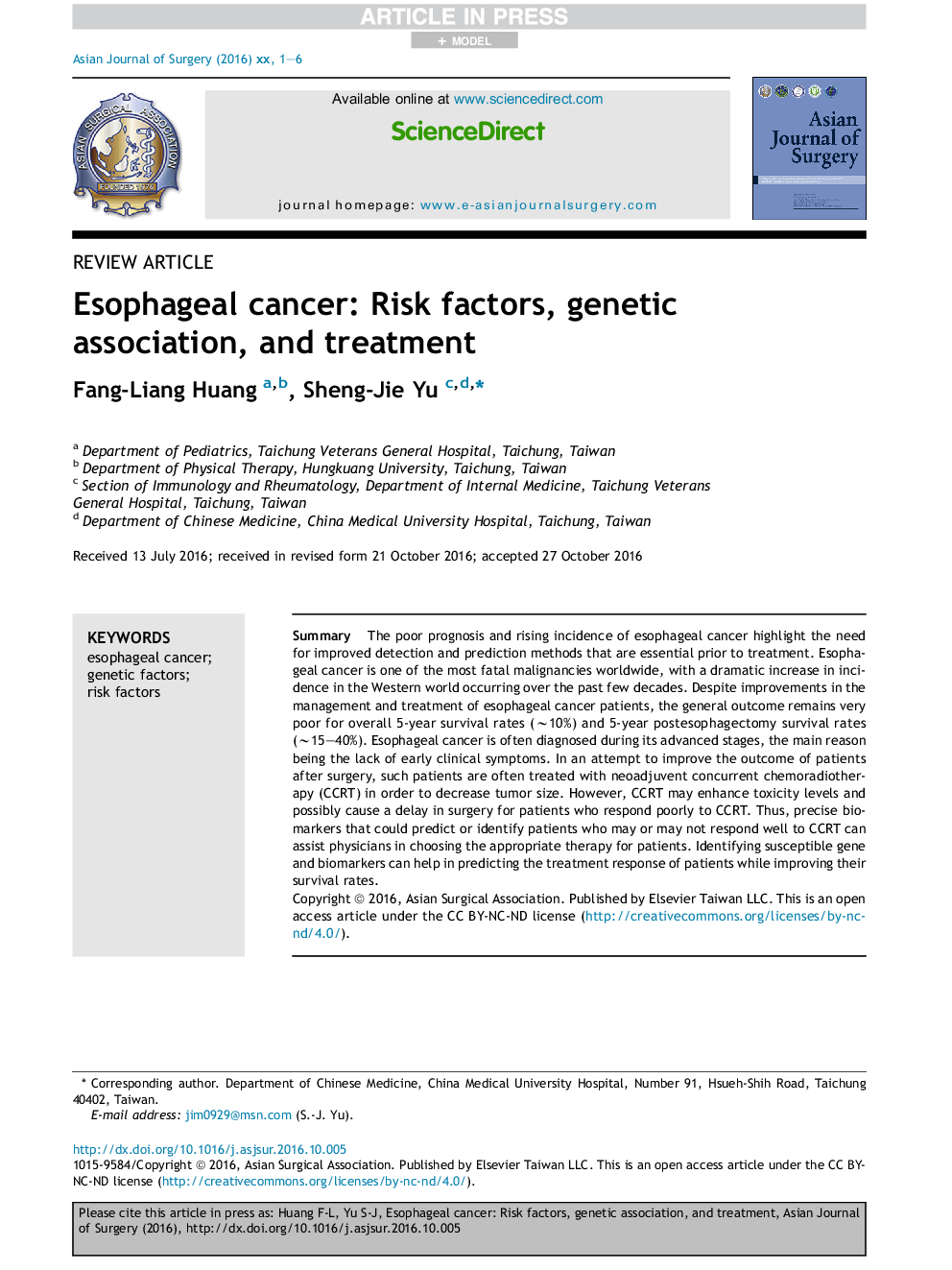| کد مقاله | کد نشریه | سال انتشار | مقاله انگلیسی | نسخه تمام متن |
|---|---|---|---|---|
| 8831005 | 1611736 | 2018 | 6 صفحه PDF | دانلود رایگان |
عنوان انگلیسی مقاله ISI
Esophageal cancer: Risk factors, genetic association, and treatment
ترجمه فارسی عنوان
سرطان مری: عوامل خطر، ارتباط ژنتیکی و درمان
دانلود مقاله + سفارش ترجمه
دانلود مقاله ISI انگلیسی
رایگان برای ایرانیان
کلمات کلیدی
سرطان مری، عوامل ژنتیکی، عوامل خطر،
موضوعات مرتبط
علوم پزشکی و سلامت
پزشکی و دندانپزشکی
عمل جراحی
چکیده انگلیسی
The poor prognosis and rising incidence of esophageal cancer highlight the need for improved detection and prediction methods that are essential prior to treatment. Esophageal cancer is one of the most fatal malignancies worldwide, with a dramatic increase in incidence in the Western world occurring over the past few decades. Despite improvements in the management and treatment of esophageal cancer patients, the general outcome remains very poor for overall 5-year survival rates (â¼10%) and 5-year postesophagectomy survival rates (â¼15-40%). Esophageal cancer is often diagnosed during its advanced stages, the main reason being the lack of early clinical symptoms. In an attempt to improve the outcome of patients after surgery, such patients are often treated with neoadjuvent concurrent chemoradiotherapy (CCRT) in order to decrease tumor size. However, CCRT may enhance toxicity levels and possibly cause a delay in surgery for patients who respond poorly to CCRT. Thus, precise biomarkers that could predict or identify patients who may or may not respond well to CCRT can assist physicians in choosing the appropriate therapy for patients. Identifying susceptible gene and biomarkers can help in predicting the treatment response of patients while improving their survival rates.
ناشر
Database: Elsevier - ScienceDirect (ساینس دایرکت)
Journal: Asian Journal of Surgery - Volume 41, Issue 3, May 2018, Pages 210-215
Journal: Asian Journal of Surgery - Volume 41, Issue 3, May 2018, Pages 210-215
نویسندگان
Fang-Liang Huang, Sheng-Jie Yu,
